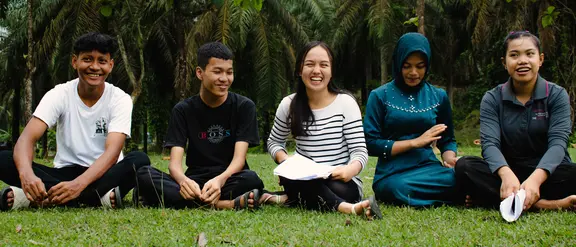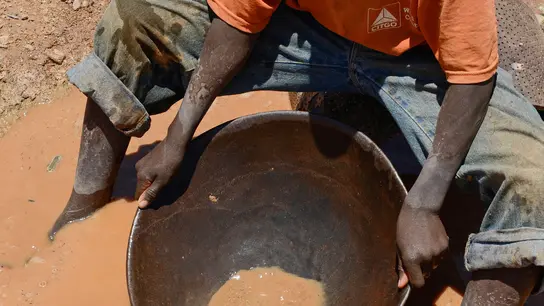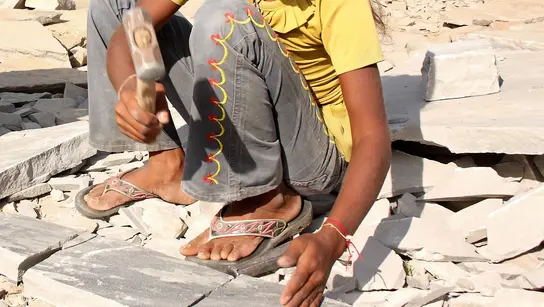Indonesia
Participation, education and protection for working children
Not long ago, Dika thought it was perfectly normal that he and his friends worked, often harvesting oil palm fruit late into the night or helping their parents sell it. After all, almost all the children in the village did it as a matter of course.
In Damak Maliho, in the Indonesian province of North Sumatra, most residents depend on palm oil plantations for their livelihoods. Harvesting requires many hands. It is therefore commonplace for children to help on the plantations, despite the risk of accidents – and even though many have to miss school to do so.
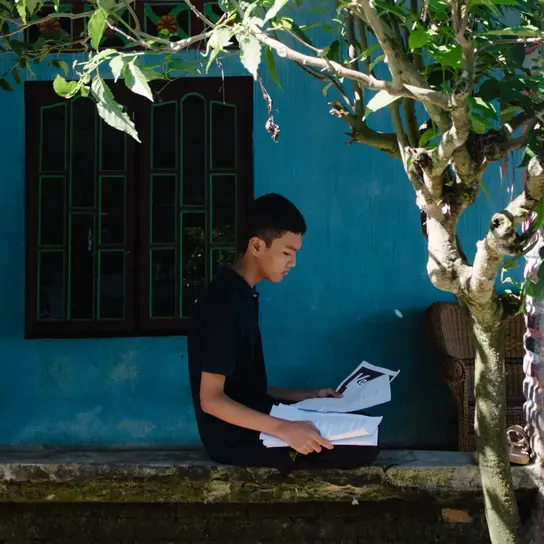
Radika, who is usually called Dika, recalls the story of a friend who was expelled from high school in his freshman year. He had fallen asleep in class several times because he was exhausted from working the day before. When asked why he worked so much, the friend explained that he had to help his mother support the family. His parents had divorced.
“Not because he wanted to work, but for his family,” says Dika. For him, that’s the crux of the problem: children who should actually be in school are forced to drop out in order to work.
Dika himself enjoys reading and writing, and also likes to do housework – a contrast to the prevailing image in Damak Maliho: Here, sons are seen as those who can take on heavy and hard work. They transport palm oil fruits; some also break stones or repair tires. When Dika first expressed the desire to pursue higher education and become an Indonesian teacher, his father refused: He should work.
But Dika wasn't the only young person in the village struggling with the double burden of school and work. He soon met with other girls and boys in the Child Advisory Committee (CAC) for Damak Maliho. There, at meetings by the food stall, on the veranda, or in the community center, he found the space to openly discuss problems and look for solutions.
He learned that the hard work he had considered normal since childhood was actually a violation of his rights as a child. At the same time, it remained clear to him that one couldn't simply forbid everyone from working if other sources of income were lacking.
"Children shouldn't work. And if they don't have a choice, they at least need time to rest, play, and learn."
PKPA – The Center for Education and Child Protection
(Pusat Kajian dan Perlindungan Anak)
Child labor is still widespread in the region around Medan City in North Sumatra. Poorer families, in particular, lack alternative ways to make ends meet. Because child labor often takes place in the informal sector and is illegal, those children and young people who depend on this income are especially vulnerable to exploitation and mistreatment: While there are prohibitions, there is no strategy to address the root causes of poverty.
Instead of criminalizing children, the local children's rights organization PKPA focuses on dialogue and empowering them. Children and young people working in the informal sector are supported in representing their situation and concerns to politicians and businesses through groups such as the Child Advisory Committees. At the same time, PKPA provides concrete assistance – for example, through education and healthcare programs.
PKPA has been Terre des Hommes project partner since 2018.
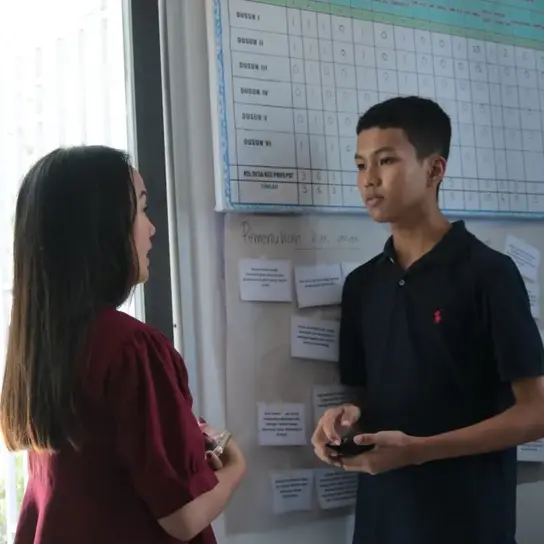
Today, Dika is 17 years old. He is one of the spokespeople for the CAC in Damak Maliho, and soon he will travel to Jakarta to represent his community at the conference there for the World Day Against Child Labour. He will draw attention to the dangers of child labour, including its physical and psychological consequences.
Together with the CAC, he also works locally in his home region to urge the local government to do more to combat poverty and support children from poor families. His primary wish is for better jobs to be created so that parents can meet their families' basic needs, meaning children no longer have to work such long and hard hours.
Dika can also continue to pursue his great passion, writing. He has won several writing competitions at school. And his mother supports his dream – so he can still hope to study at university.
11.06.2025
